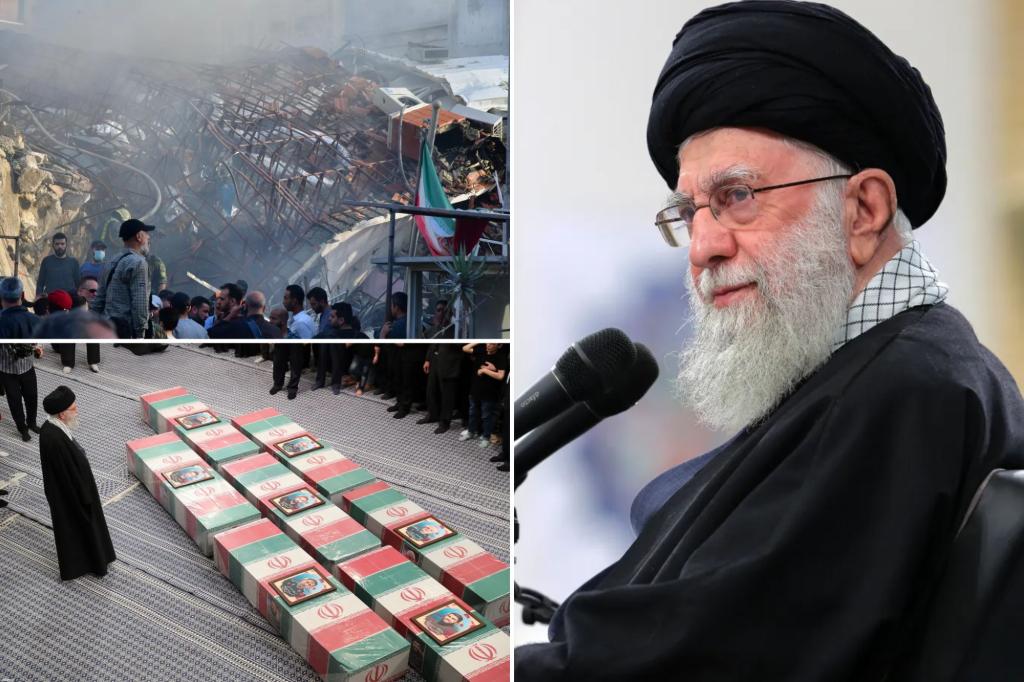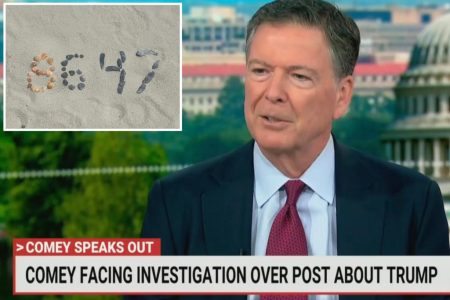Iran’s supreme leader, Ayatollah Ali Khamenei, made a statement on Wednesday condemning Israel for attacking the Iranian embassy compound in Syria. He stated that Israel “must be punished and it shall be” for the bombing that Iran said killed seven military advisers. Khamenei emphasized that attacking the consulate was akin to attacking Iranian soil, and he vowed that the “evil regime” of Israel would be punished for its actions.
Following Khamenei’s comments, Israeli Foreign Minister Israel Katz responded by warning that Israel would retaliate if Iran attacked Israel from its own territory. He made this statement on the social media platform X, indicating a firm stance against any potential acts of aggression from Iran. The exchange between Iranian and Israeli leaders highlights the growing tension between the two countries and the potential for further escalation in the region.
Iran has been supporting various groups involved in conflicts across the region, particularly in response to Israel’s military actions in Gaza. The fighting between Israel and groups such as Hamas has resulted in a significant number of casualties, with thousands of Palestinians killed during Israeli bombardments of Gaza. The violence and bloodshed in Gaza have intensified the broader regional conflict, with Iran backing groups that are engaging in hostilities against Israel and its allies.
Hamas, a Palestinian group supported by Iran, carried out an attack on Israel that resulted in the deaths of 1,200 people, according to Israeli reports. This attack served as a catalyst for further violence and retaliation between Israel and its adversaries in the region. Additionally, Iranian-backed groups like Lebanese Hezbollah have been engaging in daily exchanges of fire with Israel, further fueling tensions and raising concerns about the potential for a wider conflict.
The regional conflict involving Iran, Israel, and various other groups has also spilled over into other countries, with Iraqi groups launching attacks on US forces in Syria and Iraq, and the Houthi rebels in Yemen targeting shipping in key waterways like the Red Sea and the Gulf of Aden. These actions have added complexity to an already volatile situation in the region, with multiple actors involved in ongoing conflicts across different countries. The involvement of Iranian-backed groups in these various conflicts underscores Iran’s efforts to expand its influence and challenge its regional rivals.
The escalating tensions between Iran and Israel, as well as the involvement of other groups in the region, pose significant challenges to stability and security in the Middle East. The actions and rhetoric of leaders like Ayatollah Ali Khamenei and Israel Katz reflect the high stakes and competing interests at play in the ongoing conflicts. As the situation continues to evolve, there is a risk of further violence, casualties, and potential escalation that could have far-reaching implications for the region and beyond. Efforts to de-escalate tensions and find diplomatic solutions will be crucial in order to prevent further bloodshed and instability in the Middle East.















